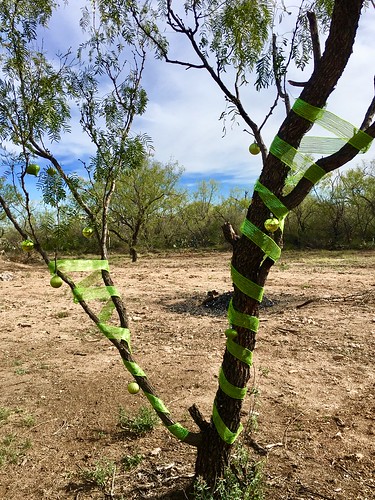Ture on account of anxiousness over radiation exposure)In the point of view of mental well being, the association between anxiousness over radiation exposure and other relevant aspects has however to be clarified, whilst past studies on radiation protection of common A-196 workers in Fukushima Prefecture indicated an association amongst the workers’ behavioral elements as well as the age groups of their young children,).We posit three hypotheses as follows. Initially, younger workers have greater anxiousness over radiation exposure simply because of future health difficulties that could arise as a consequence of possessing a longer life expectancy. Moreover, their higher information-gathering capacity may well expose them to much more details on the effects of low-level radiation exposure on their overall health. Second, the workers have higher anxiousness over radiation exposure if they do not have sufficient social connections. Supportive relationships bring improved mental wellness for workers commonly, as Kuper et al. indicated)The absence of such relationships may contribute also to increased anxiety more than radiation exposure. Lastly, workers with no sufficient operating conditions or employee education have greater anxiety more than radiation exposure. Accompanied by an growing number of decontamination workers, poor management or violation of labor laws by employers has been reported)There is a higher possibility that decontamination workers have troubles when it comes to functioning circumstances and employee education, and that they therefore have higher anxiousness over radiation exposure. The goal of this study was to investigate the impact of age, social connection, operating situations, and employee education around the perceived anxiousness more than radiation exposure among decontamination workers. In addition, the decontamination perform has not been operated in the “difficult-to-return zone”, but only in locations with comparatively low dose rates, for example the ” no-residence zones ” and “zones being prepared for lifting of evacuation order. ” As a result, the study of anxiousness more than radiation exposure among decontamination workers is SID 3712249 additional considerable than the study of physical issues brought on by radiation. Subjects and Methods Study Participants Participants’ data were obtained from our prior study developed to investigate associations of behavioral, social, mental, and environmental components with occupational health among radiation decontamination workers in Fukushima Prefecture, Japan). We asked all businesses, who had been inved in radiation decontamination in Fukushima Prefecture and attended a coaching system against radiation PubMed ID:http://www.ncbi.nlm.nih.gov/pubmed/27602092?dopt=Abstract exposure held by the Fukushima Occupational Well being Promotion Center from April to July , to choose approximately workers to complete the questionnaires for the present study. Then, in August , self-administered questionnaires were sent to the corporations to distribute amongst a total of , decontamination workers. By the finish of October , workers (guys and girls) returned the questionnaires anonymously by mail. Practically all the respondents had been male, and as a result, males who completed the questionnaires had been integrated inside the evaluation as participants within this study. The response price was,J Occup Health,,as well as the successful rate was. Measures Degree of perceived anxiousness more than radiation exposure: The degree of perceived anxiety more than radiation exposure was assessed by the query, “How much anxiety do you might have more than radiation exposure” The answers have been then measured on a four-point scale ( ” Really a  great deal, ” “Somewhat,” “A small bit,” and “None”). Function.Ture on account of anxiety over radiation exposure)From the point of view of mental overall health, the association between anxiousness more than radiation exposure and also other relevant elements has yet to be clarified, whilst previous research on radiation protection of basic workers in Fukushima Prefecture indicated an association among the workers’ behavioral aspects and the age groups of their youngsters,).We posit three hypotheses as follows. Initial, younger workers have greater anxiety over radiation exposure since of future overall health complications that could arise on account of obtaining a longer life expectancy. Additionally, their higher information-gathering capacity might expose them to considerably more information around the effects of low-level radiation exposure on their health. Second, the workers have greater anxiety more than radiation exposure if they do not have sufficient social connections. Supportive relationships bring far better mental wellness for workers commonly, as Kuper et al. indicated)The absence of such relationships may possibly contribute also to enhanced anxiety over radiation exposure. Lastly, workers with no sufficient working conditions or employee education have higher anxiousness over radiation exposure. Accompanied by an escalating variety of decontamination workers, poor management or violation of labor laws by employers has been reported)There is a higher possibility that decontamination workers have difficulties when it comes to operating conditions and employee education, and that they as a result have greater anxiety over radiation exposure. The goal of this study was to investigate the effect of age, social connection, working circumstances, and employee education on the perceived anxiety over radiation exposure amongst decontamination workers. Additionally, the decontamination operate has not been operated inside the “difficult-to-return zone”, but only in locations with fairly low dose prices, including the ” no-residence zones ” and “zones being ready for lifting of evacuation order. ” Hence, the study of anxiety over radiation exposure among decontamination workers is much more considerable than the study of physical complications caused by radiation. Subjects and Approaches Study Participants Participants’ data had been obtained from our previous study developed to investigate associations of behavioral, social, mental, and environmental variables with occupational well being among radiation
great deal, ” “Somewhat,” “A small bit,” and “None”). Function.Ture on account of anxiety over radiation exposure)From the point of view of mental overall health, the association between anxiousness more than radiation exposure and also other relevant elements has yet to be clarified, whilst previous research on radiation protection of basic workers in Fukushima Prefecture indicated an association among the workers’ behavioral aspects and the age groups of their youngsters,).We posit three hypotheses as follows. Initial, younger workers have greater anxiety over radiation exposure since of future overall health complications that could arise on account of obtaining a longer life expectancy. Additionally, their higher information-gathering capacity might expose them to considerably more information around the effects of low-level radiation exposure on their health. Second, the workers have greater anxiety more than radiation exposure if they do not have sufficient social connections. Supportive relationships bring far better mental wellness for workers commonly, as Kuper et al. indicated)The absence of such relationships may possibly contribute also to enhanced anxiety over radiation exposure. Lastly, workers with no sufficient working conditions or employee education have higher anxiousness over radiation exposure. Accompanied by an escalating variety of decontamination workers, poor management or violation of labor laws by employers has been reported)There is a higher possibility that decontamination workers have difficulties when it comes to operating conditions and employee education, and that they as a result have greater anxiety over radiation exposure. The goal of this study was to investigate the effect of age, social connection, working circumstances, and employee education on the perceived anxiety over radiation exposure amongst decontamination workers. Additionally, the decontamination operate has not been operated inside the “difficult-to-return zone”, but only in locations with fairly low dose prices, including the ” no-residence zones ” and “zones being ready for lifting of evacuation order. ” Hence, the study of anxiety over radiation exposure among decontamination workers is much more considerable than the study of physical complications caused by radiation. Subjects and Approaches Study Participants Participants’ data had been obtained from our previous study developed to investigate associations of behavioral, social, mental, and environmental variables with occupational well being among radiation  decontamination workers in Fukushima Prefecture, Japan). We asked all businesses, who had been inved in radiation decontamination in Fukushima Prefecture and attended a instruction system against radiation PubMed ID:http://www.ncbi.nlm.nih.gov/pubmed/27602092?dopt=Abstract exposure held by the Fukushima Occupational Wellness Promotion Center from April to July , to pick about workers to finish the questionnaires for the present study. Then, in August , self-administered questionnaires were sent towards the organizations to distribute amongst a total of , decontamination workers. By the finish of October , workers (men and females) returned the questionnaires anonymously by mail. Nearly all the respondents were male, and because of this, males who completed the questionnaires have been included within the analysis as participants within this study. The response price was,J Occup Wellness,,along with the productive rate was. Measures Degree of perceived anxiety over radiation exposure: The degree of perceived anxiety more than radiation exposure was assessed by the question, “How considerably anxiousness do you may have more than radiation exposure” The answers were then measured on a four-point scale ( ” Quite a lot, ” “Somewhat,” “A tiny bit,” and “None”). Operate.
decontamination workers in Fukushima Prefecture, Japan). We asked all businesses, who had been inved in radiation decontamination in Fukushima Prefecture and attended a instruction system against radiation PubMed ID:http://www.ncbi.nlm.nih.gov/pubmed/27602092?dopt=Abstract exposure held by the Fukushima Occupational Wellness Promotion Center from April to July , to pick about workers to finish the questionnaires for the present study. Then, in August , self-administered questionnaires were sent towards the organizations to distribute amongst a total of , decontamination workers. By the finish of October , workers (men and females) returned the questionnaires anonymously by mail. Nearly all the respondents were male, and because of this, males who completed the questionnaires have been included within the analysis as participants within this study. The response price was,J Occup Wellness,,along with the productive rate was. Measures Degree of perceived anxiety over radiation exposure: The degree of perceived anxiety more than radiation exposure was assessed by the question, “How considerably anxiousness do you may have more than radiation exposure” The answers were then measured on a four-point scale ( ” Quite a lot, ” “Somewhat,” “A tiny bit,” and “None”). Operate.